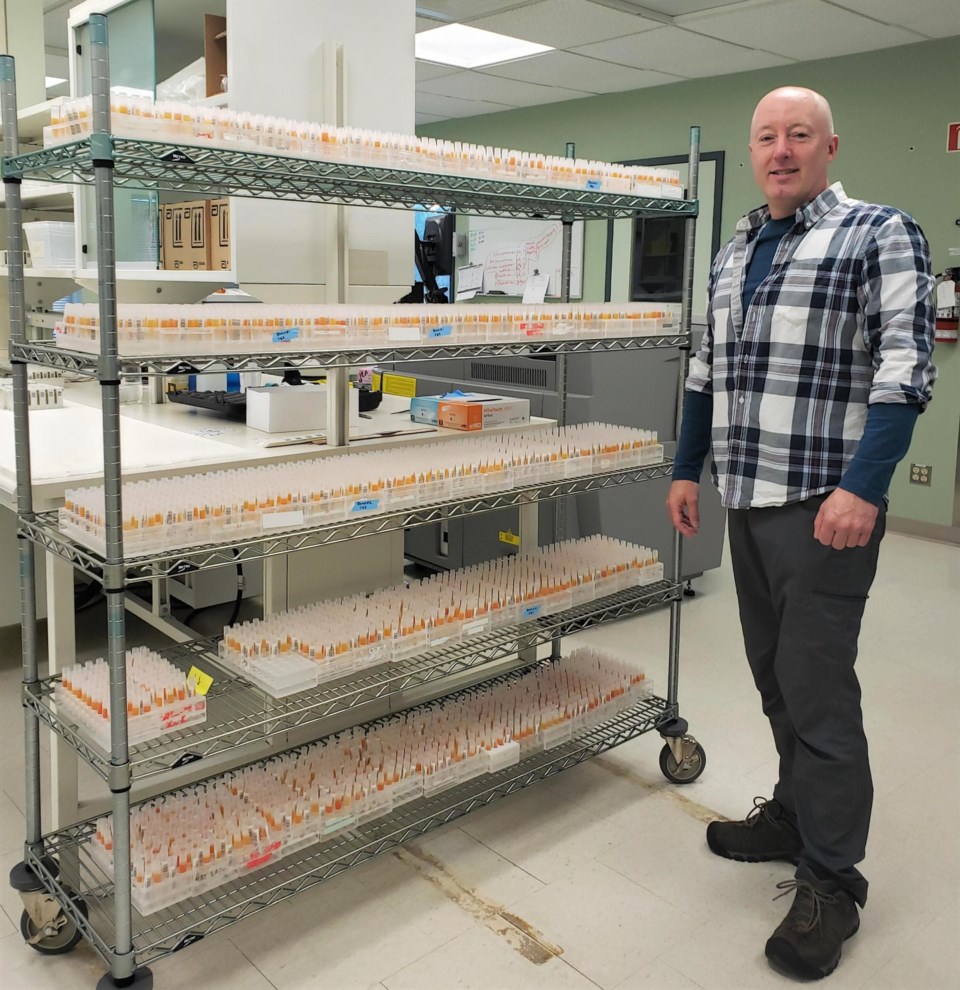Initial results released this week from Canadian research into immunity against COVID-19 show a very low number of people have the antibodies that make them immune to COVID-19.
Canadian Blood Services and the Canadian COVID-19 Immunity Task Force released early results Thursday of 10,000 blood samples tested for the antibody to SARS-CoV-2.
Fewer than one per cent of the samples of blood tested so far are showing antibodies.
“We are still learning about COVID-19 immunity, but the results indicate that the vast majority of individuals tested remain vulnerable to infection because very few individuals have antibodies against the virus,” stated the announcement posted to the Canadian Blood Services website.
The results are based on blood samples collected in May from blood donors in nine of Canada’s provinces. Quebec has its own blood bank and is conducting its own tests for the task force.
Dr. Charles Gardner, medical officer of health for the Simcoe Muskoka District Health Unit, has been calling for provincial and federal seroprevalence (antibody) testing.
“The finding of the prevalence of less than one per cent among the 10,000 tests done is in keeping with the findings in other countries,” said Gardner. “However, I would want to know the precise finding and if conclusions could be drawn regarding more local findings, such as within Ontario.”
Gardner also noted Quebec has had the highest number of cases among Canadian provinces and was not included in the seroprevalence study data released.
“The very low prevalence indicates that the great majority of Canadians are still vulnerable to the infection,” Gardner said. “It also speaks to the success of the public health measures taken to date to protect the public from infection.”
The early results serve to further illustrate the need for public health control measures, according to Gardner. Those include physical distancing, hand washing, mask use in indoor public places, and self-isolation, assessment, and testing for those with symptoms.
The seroprevalence testing done by Canadian Blood Services (CBS) is a portion of the test information being provided to Canada’s Immunity Task Force.
“Ultimately, the study may help give policy-makers an understanding of the COVID-19 infection rate for different groups and regions in Canada, including those who may have only suffered a mild infection or were asymptomatic to COVID-19 and were eligible for donating blood,” states the CBS website.
However, the study is not yet complete with more testing to be done.
For phase one of the COVID seroprevalence study, CBS will be testing 37,800 donations. The results published so far are from the first 10,000 samples.
According to the information released with the seroprevalence results by the blood bank, the organization already routinely tests blood donations and has a research program accustomed to seroprevalence work.
“As a blood operator, we are uniquely positioned to help by providing information on the presence of COVID-19 antibodies in a large number of people across Canada relatively quickly,” Dr. Graham Sher, CEO of Canadian Blood Services, said in a release.
The samples were made anonymous for the seroprevalence study, so any individual donors who test positive for COVID antibodies will not be notified.
“The purpose of this study is to get a broad sense of how prevalent the disease has been in the Canadian blood-donor population, not to determine the status of individual donors,” states the CBS website.
Since the samples are coming from blood donors, the seroprevalence testing results from CBS provide insight into a “subset” of the Canadian population. Blood donors are relatively healthy people over the age of 17 and, typically, younger than 65 years old.
According to CBS, the immunity task force will also be collecting data from other sources to help “fill gaps in the data.”
Gardner is looking forward to seeing a more detailed analysis of the complete data and local findings within Ontario.



